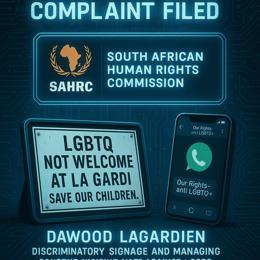Image created by AI
AfriForum Addresses Racialised Legislation at UN Business and Human Rights Forum
AfriForum, a prominent South African civil rights group, recently participated in the thirteenth session of the United Nations Forum on Business and Human Rights held in Geneva, Switzerland, from November 25 to 27. The event, a premier platform for dialogue among various stakeholders, focuses on the implementation of the UN Guiding Principles on Business and Human Rights, which aim to mitigate adverse human rights impacts stemming from business operations.
During the forum, Alana Bailey, AfriForum’s delegate, emphasized the necessity of a balanced approach integrating both national and international interests along with a blend of voluntary and mandatory measures to safeguard human rights while promoting economic growth.
A significant part of AfriForum’s involvement was its report highlighting the escalation of racialised legislation in South Africa. Despite the country’s constitutional dedication to non-racialism and equality, AfriForum’s findings suggest that the increase and intensification of racial laws have neither decreased inequality nor effectively benefited the broader society. Instead, legislation such as the Broad-Based Black Economic Empowerment Act and the Employment Equity Act were often benefiting only a small elite and correlating with heightened public sector corruption. Moreover, such measures have systematically excluded minority communities from economic participation, placing these groups at an increased risk.
AfriForum argues that the persistence of social inequality in South Africa is greatly influenced by such racialised legislation. By presenting these findings at an international forum like the UN’s, the organisation hopes to elevate global awareness and advocate for legislative revisions. This includes proposals for incorporating sunset clauses into affirmative action initiatives and incentivizing empowerment across all communities, thus aligning business prosperity with the promotion of human rights.
The session not only served as a crucial podium for AfriForum to voice its concerns but also provided the organization with extensive networking opportunities and insights into international best practices for balancing human rights with business interests. With representatives from governments, businesses, civil society, and more globally in attendance, the forum underscored the universal challenges and shared commitments in advancing human rights within business frameworks.










